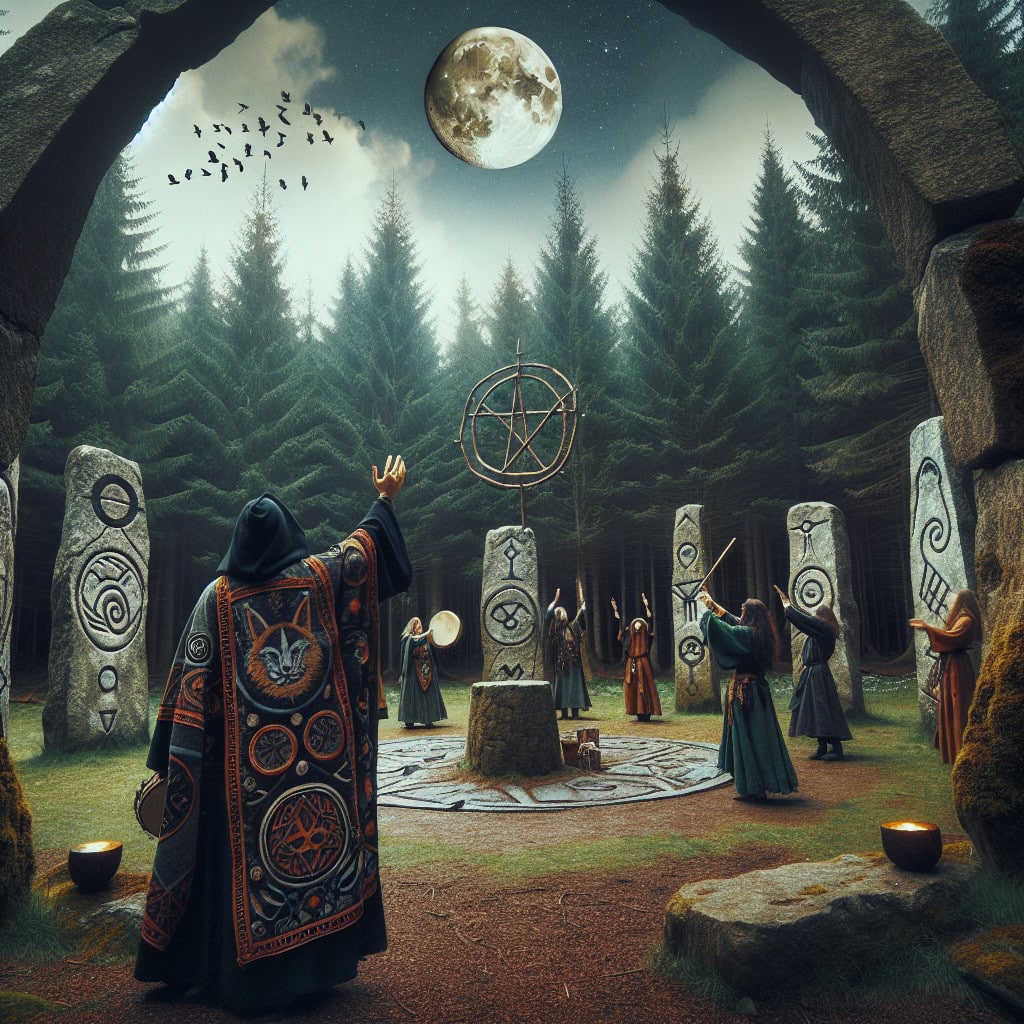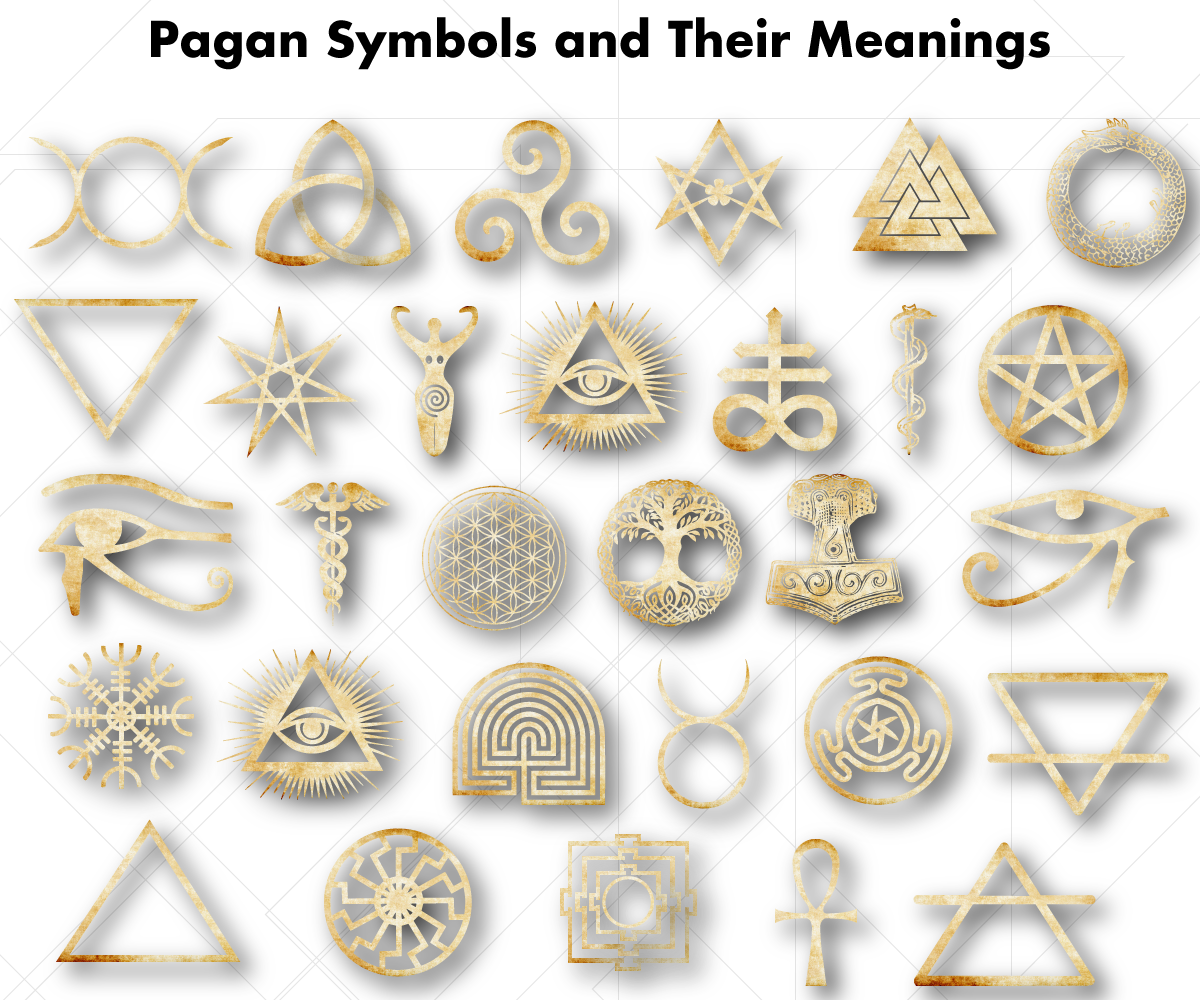Have you ever stopped to ponder the true pagan meaning, that particular word that pops up in conversations about old beliefs and new spiritual paths? It's a word that, quite frankly, holds a lot of different ideas for different people, and understanding it can be a bit like piecing together a fascinating old story. You know, sometimes a word feels so simple, but its background is actually quite rich and layered, and this one is certainly that way.
You see, the word "pagan" actually comes from a very old Latin word, "paganus." Now, that Latin word, in its earliest days, just meant something like 'rural' or 'rustic,' or perhaps 'civilian.' It wasn't really a term of religion at all, more about where someone lived or what they did. But then, as a matter of fact, early Christians in the fourth century started using it in a different way, to talk about people in the Roman Empire who followed a belief system with many gods, or those who were considered "ethnic" in their practices.
So, while it started as a simple description, it changed quite a bit over time. Today, the pagan meaning has shifted yet again, often referring to someone who practices a current form of paganism, like Wicca, which is really quite different from its original usage. It's almost as if the word itself has had its own journey, picking up new shades of meaning along the way, and that, I mean, is part of what makes it so interesting to look at.
Table of Contents
- What is the historical pagan meaning?
- How did early Christians use the word pagan meaning?
- What is the contemporary pagan meaning?
- What does paganism truly mean as a spiritual path?
- Is pagan meaning linked to specific religious traditions?
- What about the ancient pagan meaning?
- How has the pagan meaning changed over time?
- What do people who identify with the pagan meaning believe?
What is the historical pagan meaning?
When we look back in time, the word "pagan" has a really interesting background, coming to us from the old Latin term "paganus." This word, you see, was first used in the fourth century by early Christians. They used it to describe people living in the Roman Empire who, in fact, followed a belief system where they worshipped more than one god. It’s pretty clear that its use then was about distinguishing those who didn't follow the emerging Christian faith.
The Latin root, "paganus," originally had a very simple, down-to-earth sense. It meant something like 'rural' or 'rustic,' perhaps someone from the countryside. Then, it also took on the idea of a 'civilian,' someone not in the military. So, in a way, the early Christians might have used it to refer to those who were just ordinary folks, living in the country, who hadn't yet adopted the new religion. It's almost as if it was a casual description that later picked up a much bigger, more significant, religious meaning.
How did early Christians use the word pagan meaning?
The way early Christians used the word "pagan" was quite specific, really. They pointed it at individuals within the Roman Empire who practiced polytheism. That means these people had a belief system that included worshipping multiple gods and goddesses, not just one supreme being. This was a clear distinction from the monotheistic view that was central to early Christian teachings. So, in a way, it became a label to set apart those who held different spiritual convictions.
Furthermore, my text suggests that the term was also applied to those considered "ethnic." This could mean people who held onto the traditional, local customs and religious practices of their particular group or heritage, rather than adopting the universalizing faith of Christianity. So, it wasn't just about the number of gods, but also about cultural identity and ancestral ways of life. It’s actually quite a broad stroke, encompassing a lot of different groups under one general label, which is pretty common for terms like this.
What is the contemporary pagan meaning?
Fast forward to our present day, and the pagan meaning has taken on a quite different, more modern interpretation. Today, when someone talks about a "pagan," they are often referring to a person who practices a contemporary form of paganism. This could include various spiritual paths, like Wicca, which is a well-known example. It’s a very different usage from its historical roots, you know, reflecting how language evolves with society.
The way we use "pagan" in a sentence now generally points to these current spiritual practices. It’s no longer just about ancient Romans or country dwellers. Instead, it’s about a living, breathing set of beliefs that people choose to follow today. The term has, in some respects, been reclaimed and redefined by the communities who identify with it, giving it a fresh and relevant sense for our time. It’s pretty neat how words can shift like that, actually.
What does paganism truly mean as a spiritual path?
When we consider paganism as a spiritual path, it’s truly an umbrella term, which means it covers a whole lot of different beliefs and practices. It’s not one single religion with one set of rules or one holy book. Instead, it’s a diverse collection of spiritual and religious beliefs that share some common threads. One of the biggest commonalities, you know, is a strong connection to and worship of nature and the earth. This focus on the natural world is a pretty central idea for many who follow these paths.
Because it’s such a broad term, paganism truly encompasses many different traditions and ways of seeing the world. It might involve reverence for natural cycles, the seasons, or specific natural elements. Some paths might honor deities associated with nature, while others focus more on the inherent divinity within the earth itself. It’s very much about finding spirituality in the world around us, and that, in some respects, is a very old way of approaching faith.
Is pagan meaning linked to specific religious traditions?
Yes, the pagan meaning is certainly linked to specific religious traditions, but it’s important to remember that it's a very wide category. My text points out that it’s a broad term that encompasses many different paths. This means you’ll find a huge variety of beliefs and practices under this one big label. It’s not like saying "Christianity" or "Islam," where there’s a more defined set of core tenets. Instead, it’s a family of traditions, each with its own unique flavor, which is pretty interesting.
One way paganism is often defined, particularly from a Christian perspective, is as a term used to describe those religions that do not worship the God of Abraham. This figure, you see, is central to both Christianity and to other Abrahamic religions like Judaism and Islam. So, in this context, paganism acts as a sort of catch-all for anything outside that specific religious lineage. It’s a way of grouping together many different spiritual expressions that don’t fit into those well-known categories, and that, you know, can be a bit confusing for newcomers.
What about the ancient pagan meaning?
It's fascinating to think about the ancient pagan meaning, as it’s often considered the ancestral religion of the whole of humanity. Before the rise of many of the world's major organized religions, people typically connected with the divine through nature, local spirits, and multiple gods. This ancient way of seeing the world, my text explains, remains active throughout much of the world even today, which is pretty remarkable when you think about it.
This ancient religious outlook can be found both in what we might call complex civilizations and in smaller, more traditional communities. It’s not something that just disappeared with the advent of newer faiths. Instead, it adapted, sometimes went underground, and in many places, it just kept going. So, the roots of paganism are really, really deep, going back to the earliest human spiritual expressions, and that, in a way, gives it a very profound history.
How has the pagan meaning changed over time?
The meaning of "pagan" has actually shifted quite a bit over the centuries. My text explains that the word "pagan" comes from the Latin "paganus," which, as we touched on, originally meant "country dweller." However, it later took on a somewhat derogatory tone. So, what started as a simple description of where someone lived became a word used to put people down, which is a common thing that happens with language, isn't it?
The word was once used to refer to a person who practiced a polytheistic religion, one based on belief in more than one god. This sense of the word was, you know, quite prevalent for a long time, particularly as monotheistic religions gained more followers. But now, it’s broadened even more to include the diverse range of modern pagan beliefs that we see today. It’s really interesting to see how a word can evolve, shedding old layers and taking on new ones, depending on who is using it and in what context.
What do people who identify with the pagan meaning believe?
People who identify with the pagan meaning generally hold beliefs and engage in activities that do not belong to any of the main organized religions of the world. Their spiritual paths often take nature and a belief in many gods as a fundamental basis. These beliefs are often seen as older, or are believed to be older, than many of the more structured global faiths. So, in a way, they are tapping into very ancient streams of spirituality, which is pretty cool.
My text encourages us to explore the origin, history, and traditions of paganism to really grasp what pagans believe and practice today. It tells us that pagans are generally described as those holding religious beliefs that are outside the mainstream, often with a deep reverence for the natural world and its cycles. This includes a wide array of modern paths, from Wicca, which is quite popular, to Norse traditions that look to the old gods of the North, and Hellenic traditions that draw from ancient Greek practices. It’s a very rich and varied landscape of spiritual expression, and that, you know, is what makes it so compelling for many people.
Discovering what paganism means today involves looking at its ancient roots and also the many modern paths it includes. It’s about understanding a diverse set of spiritual outlooks that honor the earth and often acknowledge multiple divine beings. From its humble Latin beginnings as a term for country folk to its current usage as an umbrella for nature-centered spiritualities like Wicca, Norse, and Hellenic traditions, the word "pagan" has certainly had a long and varied story, you know, reflecting shifts in culture and belief over many centuries.


